Vajpayee: The man of heart
Atal Bihari Vajpayee was living testament to the fact that liberality of temperament has the power to transcend ideologies.
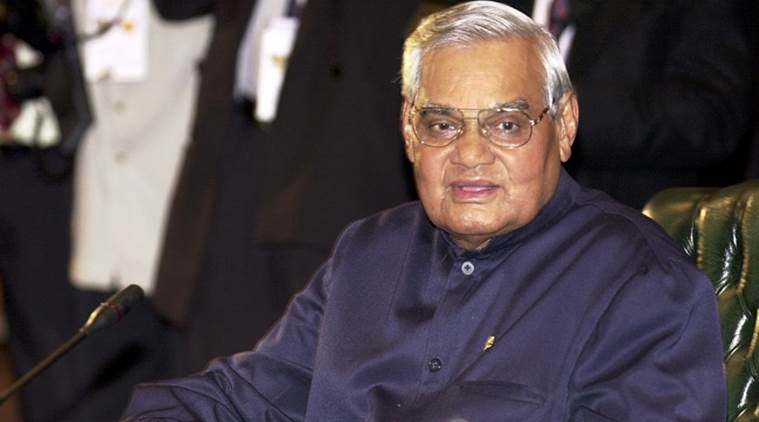
As PM, he failed to draw a clear line around tolerating heinous violence in Gujarat. (File)
Atal Bihari Vajpayee’s poem, Pehchan, has lines that might act as an epigraph to one of the most endearing, yet politically enigmatic lives in Indian politics. “Chote man se koi bada nahin hota/ toote main se koi khada nahin hota/ man haar kar maidan nahin jeete jaate hain/ na maidan jeetne sae man jeete jaate hain/ manushya ke pehchan/ uske dhan ya aasan se nahin hote/ uske man se hote hain/ man ki fakiri par/ Kuber ke sampada bhi rote hain.” A small heart can never make one big/a broken heart can never make one stand/ no battle is won by losing a heart/ but no heart is won by battlefield victory/ the recognition of man/ is not his wealth or station/ it is heart/ for the possessionless spontaneity of the heart/ even the gods of wealth cry.
“Fakiri” — that almost untranslatable word, captures the essence of Vajpayee and the paradox of his career. Fakiri, does not mean renunciation, as much as it means total spontaneity in enjoyment of the moment, without any instrumental concern for the future. Vajpayee, the man, had this singular quality of someone who enjoyed existence, the marvel called human nature, the warmth of human relationships, in their fullness without regard to strategic considerations. He achieved lightness of being, of a person not weighed down by malice or resentment, by antipathies or animosity, or a desire to control. He achieved bipartisan acclaim, generated immense personal affection, elicited trust because he exuded an air of true fakiri: He always gave the impression he was in it for the enjoyment, not the success.
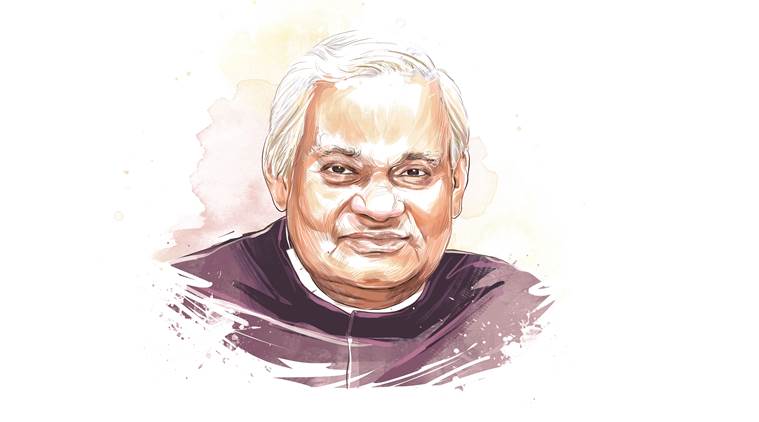
But this fakiri made him a multiply paradoxical figure. The personal spontaneity was matched by a steadfast political allegiance, to the RSS, and a right-of-centre politics that never wavered in his entire career. He was faithful to their thought if not their culture. He was a poet of great inwardness who could be as rousing a rabble rouser as any. He was an orator of the first order, who gave us the finest moments of modern Indian political history. He could hold audiences spellbound. But he managed to make sure that the line between being mesmerising and being a demagogue was not crossed.
He was an immensely popular figure, but not one who could mobilise electoral victories. His rise to the position of prime minister is held to be, in a typical Vajpayee vein, both accidental and necessary at the same time. It was accidental in that in a supreme act of evasion, he managed to stay from the deed of the demolition of Babri Masjid, even as he stewarded the ideological forces necessary for it. But his being PM was necessary in the sense that he represented the last phase of Hindu nationalist politics where Hindu nationalism would have to accommodate to India’s natural centre rather than remould it. It was the last phase in which Hindu nationalism at least needed a gesture of conciliation. And, in a final and profound historical paradox: He was the political figure who, while being the moderate, almost inviting face of Hindu nationalism, could not prevent its further descent into a permanent coarseness.
As PM, he failed to draw a clear line around tolerating heinous violence in Gujarat. His invocation of raj dharma was tepid. If he had benefited from one evasion — on Babri Masjid — his reputation suffered because of another evasion: Gujarat. Indian politics has never been the same since.
The somewhat sleepy, detached, poetic air of the persona should not detract from his importance as prime minister. He fundamentally changed India’s orientation to the world. India’s conducting nuclear tests in 1998 was a new strategic watershed that redefined its place in the world. Its psychological effects were probably even more palpable than its political ones. Equally sharp was his instinct that sending Indian troops to Iraq, as almost everyone around him was urging to do so, would be both a geostrategic and humanitarian folly. As he said about war, “everyone knows how to begin one, no one knows how to end one” — as realist and poignant a piece of wisdom you can get.
Even in economics, there was the curious mix of detachment and achievement. Brajesh Mishra, his trusted lieutenant once joked that Vajpayee’s usual question to him was “Panditji, jail to nahin bhejoge?” But behind this fakir-like trust and delegation, lay the decisive nature of his interventions: He set new benchmarks on what was possible in infrastructure; he made it acceptable to think about disinvestment; the use of FRBM laid the foundations of macroeconomic responsibility; and for the first time, India got glimpses of what 8 per cent growth could begin to look like. It came too late in his tenure, did too little for farmers, and his own party began to arrogantly believe in its own invincibility. His defeat was a shock, but NDA-1 did leave solid foundations for UPA-I to build on. But he did do what successful prime ministers do: Immeasurably raise the expectations for what a country can achieve.
In a sense the largeness of his persona was also his response to intractable issues like Pakistan and Kashmir, almost as if his persona would overcome the deep structural contradictions of the situation, and not least the resistance of his own party. His generosity on these matters gave an opening, but he simply did not have the institutional wherewithal to follow through an enduring solution.
Where did he actually stand on India’s pluralism? Was his largeness and cultivated ambiguity a cloak, as his critics alleged? It is reported that Mrs Gandhi once asked him whether M S Golwalkar, on whom he had written an essay, had any place for Muslims in India? She alleged that Golwalkar and his followers did not. Vajpayee is reported to have replied in explication, this is false; they do, “provided they join the mainstream”. The entire ambiguity of his ideology rests on what it means to join the mainstream.
But Vajpayee’s supreme political achievement is a persona that far transcended his own contradictions, ambiguities and evasions. If Advani had, to borrow a phrase of Bentham “the completeness of limited men”, Vajpayee had the expansiveness of an open persona. He was living testament to the fact that liberality of temperament, detachment, love of life and relationships, have even the power to transcend the limitations of the ideologies that trap us. In the war between Vajpayee’s persona and his ideology, he let an evil or two pass to preserve his partisan allegiances. But when his persona won, the result was spectacularly glorious and charming. Despite the company he kept, he knew a fundamental truth: A nation is only as big as its heart.
The writer is vice chancellor, Ashoka University. Views are personal
For all the latest Opinion News, download Indian Express App
More From Pratap Bhanu Mehta
- At Red Fort, PM Modi’s hope and fearPM Narendra Modi's Independence Day speech mirrored both his offer of the fantasy of hope and refusal to acknowledge the republic of fear..
- The nuances of 35AThere is a powerful argument for not abrogating the Article. But we must also think beyond the binaries on it. ..
- State and CapitalModi government has added an insidious dimension to the nexus. It is hidden in plain sight ..
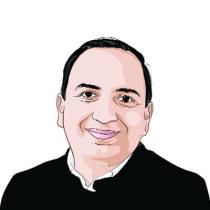
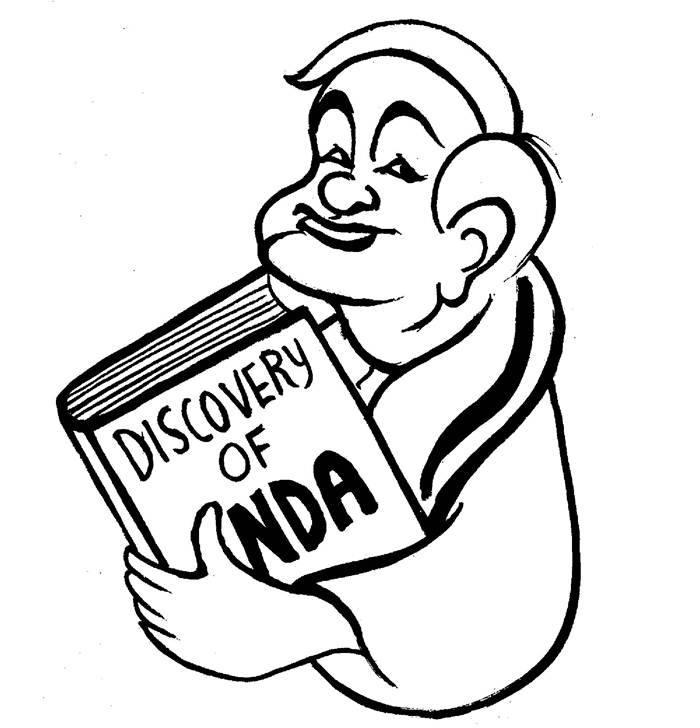 Atal by E P Unny
Atal by E P Unny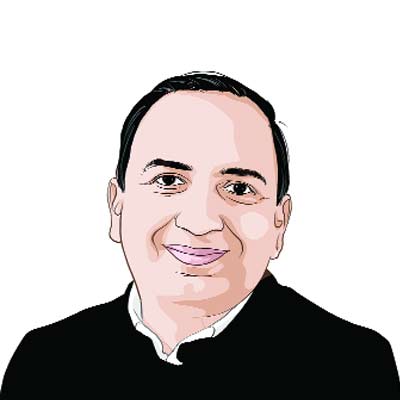






































No hay comentarios:
Publicar un comentario